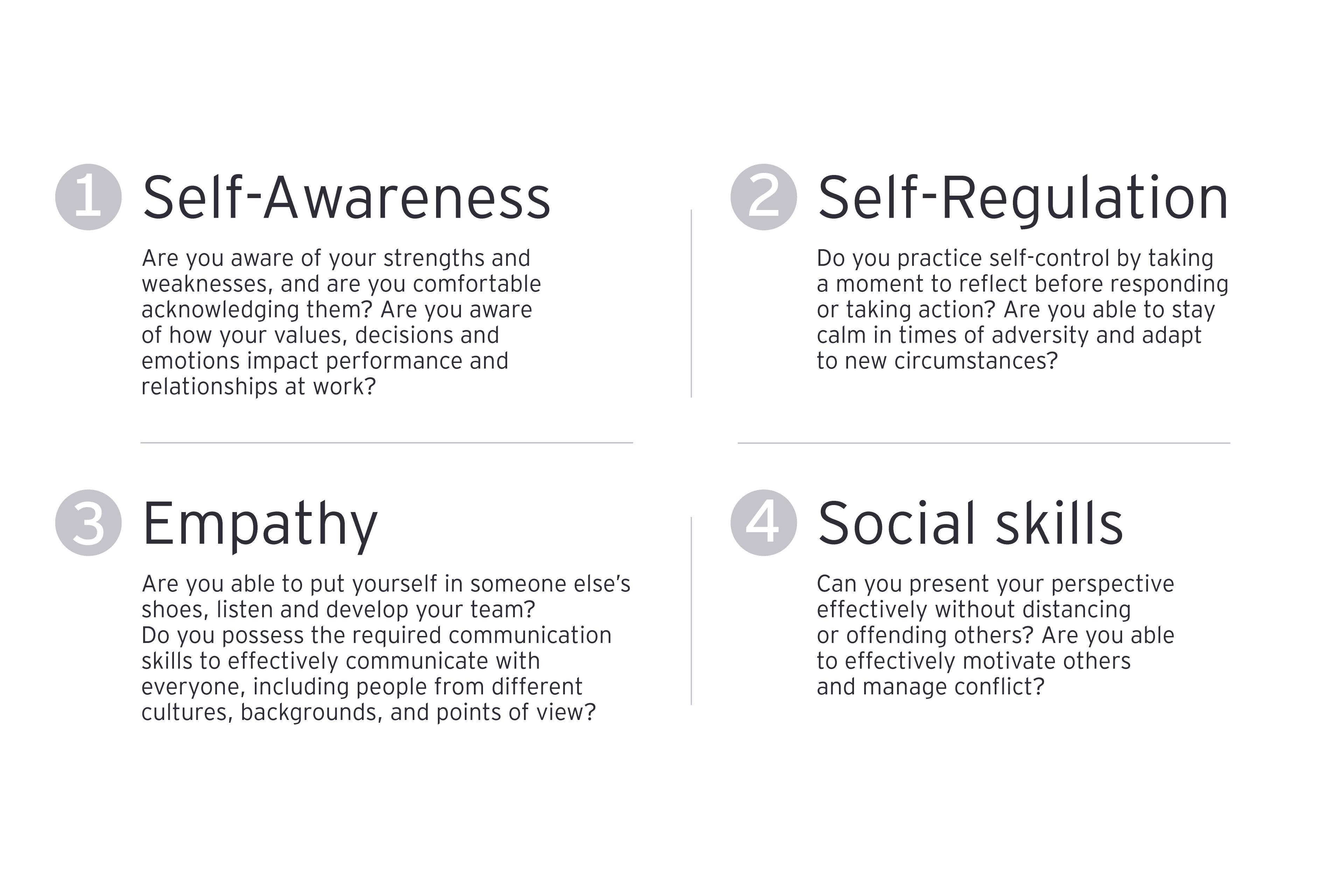EY refers to the global organization, and may refer to one or more, of the member firms of Ernst & Young Limited, each of which is a separate legal entity. Ernst & Young Limited is a Swiss company with registered seats in Switzerland providing services to clients in Switzerland.
How EY can help
-
Our learning and development consulting services team can help you develop a cohesive strategy that includes the seamless transfer of knowledge. Learn more.
Read more -
EY Transformation EQ™ services help your business implement leading practices and harness the power of your people to drive transformation success. Learn more.
Read more
AI's impact on leadership and the growing importance of EQ
Particularly since ChatGPT’s launch in November 2022, we are seeing exponential growth in the use and number of business applications for AI. Leaders are increasingly coming to terms with the current and future impact of AI both on their roles and the transformation projects that they lead. With AI now not only automating routine tasks, but also many parts of core job roles, we must question everything and therefore adapt rapidly to a new reality. The benefit of having more time for strategic decision-making and human interaction is clear, but we must double down on the things that AI cannot yet help us with, and that is EQ capabilities and skills.
EQ brings the human touch to leadership through empathy, understanding, and effective communication. As AI continues to reshape the workplace, leaders with high EQ are better positioned to harness the technology's capabilities while ensuring that their teams feel supported and understood during periods of change. Emotional intelligence therefore will complement AI, creating a powerful combination that enables leaders to thrive in the face of AI-driven automation while fostering a culture of engagement, feedback, and collaboration.
Conclusion
Fortunately, EQ is not a fixed trait: it can be cultivated and developed through training and self-awareness. Our first priority should be to enhance our EQ, to cultivate self-awareness, practice self-regulation, stay genuinely motivated, empathize with others, and excel in social skills. Then, to complement these skills, we must leverage our IQ and technical skills, and then finally embrace the AI advancements through all areas of our transformations, teams and organizations.
These combined competencies and qualities, presented with a clear vision, a culture of engagement, feedback, and collaboration, will form the foundation for effective leadership and will allow leaders to better navigate the emotional rollercoaster of transformations.






